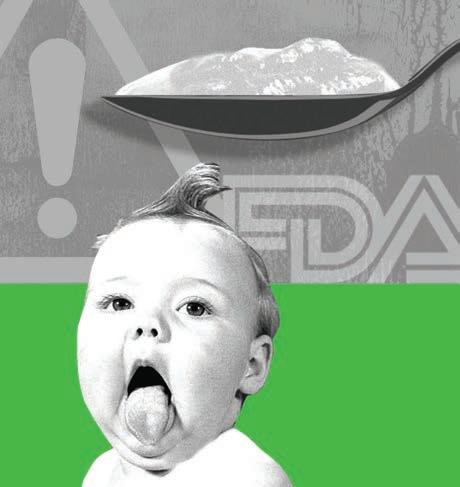Building a Better World, Together
Join with us to make a safer, fairer, healthier marketplace
Taking Toxins Out of Food
Ensuring Free COVID-19 Tests
what’s at stake Known as “forever chemicals” because they don’t break down over time, per- and polyfluoroalkyl substances— PFAS, for short—are frequently used in food packaging to prevent grease and water from seeping through. While only a few of the almost 5,000 types of PFAS have been closely studied, many have already been linked to negative health effects, including decreased fertility, weakened immune systems, increased risk of certain cancers, and low birth weight in infants. A new report, based on analyses of samples from across the country, has found that certain packaging used at eateries such as McDonald’s and Wendy’s probably contains these chemicals—even though safer alternatives are available. how cr has your back In July the New York state legislature approved a CR-backed bill that would prohibit the sale or distribution of food packaging that contains PFAS, including pizza boxes and milk cartons. If the law is signed by the governor, New York would join Washington and Maine as the first states to ban PFAS in food packaging. CR advocates are also supporting similar measures elsewhere, at the state and national levels. This issue of CR features a special report on drinking water, including test results showing several bottled waters—noncarbonated and carbonated—with PFAS levels above what many scientists say should be the limit. what you can do To learn how to limit your PFAS exposure, read this month’s cover story, on page 26, or go to CR.org/pfas1120.
what’s at stake The two federal coronavirus aid packages signed into law in March required insurers to pay for COVID-19 tests and antibody tests at no cost to consumers. The law explicitly prohibited charging copays or deductibles—for the tests themselves or for related doctors’ appointments—and set aside funds to cover tests for those without insurance. Yet according to two recent analyses, some consumers have been hit with bills for tests, ranging from hundreds to thousands of dollars. how cr has your back In response to appeals from CR advocates, more than 19,000 consumers sent almost 60,000 messages urging their members of Congress to ensure free COVID-19 testing and to end surprise medical bills for testing. CR advocates are also working with legislators to ensure that the next COVID19 relief bill closes loopholes
ILLUSTRATION BY JOHN RITTER
CRM11_Better_World [P]_2503598.indd 7
UPDATES: SAFE SLEEP & PRIVACY ■ After CR’s 2019 investigation of infant inclined sleepers—which have been linked to at least 93 infant deaths— many retailers pulled them from shelves and online sites. In July, in response to CR outreach, the online marketplace Alibaba— one of the world’s largest retailers—removed these dangerous products from its platforms as well. ■ Few rules govern what direct-to-consumer genetic testing companies, such as 23andMe, can do with the genetic data they collect— so in most states it can be bought and sold without your consent. More than 60,000 people signed a CR petition calling for strong privacy standards.
Focus on Feeding CR is advocating for limits on dangerous heavy metals in a range of baby foods. T5H8PZ0
that allow medical providers to charge consumers extra for testing and treatment. what you can do Go to CR.org/covidbills1120 to send notes to members of Congress asking them to stop surprise medical bills for COVID-19 care and to tell us about the costs you faced.
Making Baby Cereal Safer what’s at stake Rice cereal is often one of a baby’s first solid foods. Some babies eat up to three servings of it per day. That’s why it’s troubling that so many rice products contain inorganic arsenic and other heavy metals, which even at low levels can have a damaging effect on the cognitive development of very young children. how cr has your back Eight years ago, CR testing found arsenic in more than 60 rice products, with particularly high amounts in infant cereal. Since then, CR has been calling on the Food and Drug Administration to regulate arsenic levels in a range of baby foods. This August, the agency issued guidance that will limit the amount of arsenic allowed in infant rice cereals. CR applauded the FDA’s action—but also reiterated our concern that limits are still needed on arsenic in other rice-based products, and on other heavy metals in baby food. In 2018, CR found that at least two-thirds of 50 packaged foods it tested contained worrisome levels of arsenic, cadmium, or lead. what you can do Parents can learn how to keep their kids safe from heavy metals at CR.org/heavymetals1120.
NOVEMBER 2020
CR.ORG
7
9/10/20 10:58 AM










